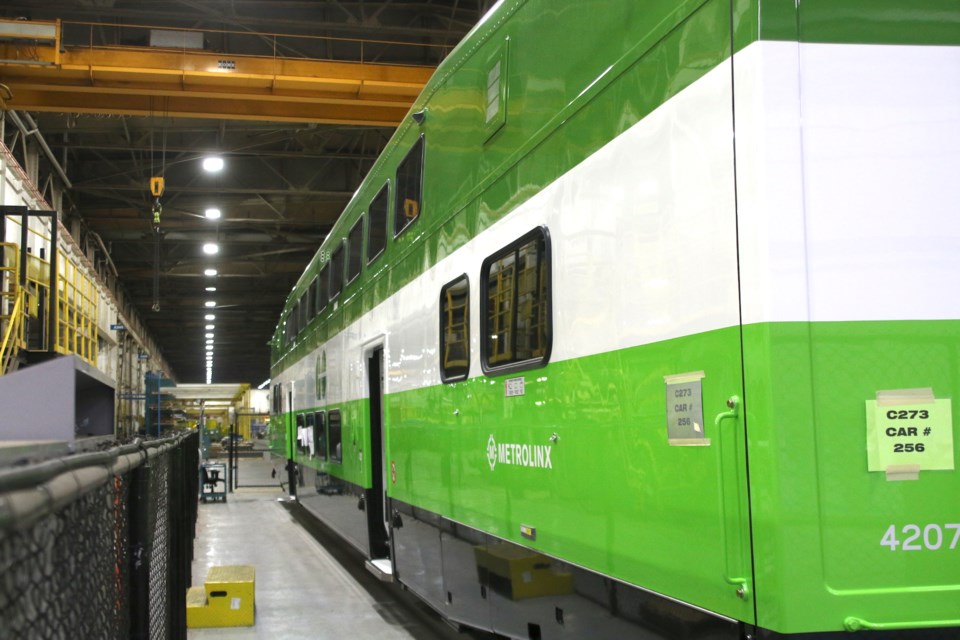A new contract for 28 BiLevel cars to be built at the Thunder Bay Bombardier plant is welcome news for managers and workers, but it does not mean the plant will see 1,100 workers on the floor. Rather, the contract is seen more as a way to bridge the gap to future, larger orders.
“We’ve always talked about the whole concept of having a critical mass, a minimum amount of activity that is required to be economically viable, be competitive in the market, and bridge the gap to some of these bigger contracts that you see in Ontario coming out, whether it be Ontario Line or others,” said David Van Der Wee, chief operating officer for Bombardier Transportation in the Americas.
Bombardier has signed a contract to build 28 BiLevel commuter rail cars for two U.S. west coast transportation authorities in a procurement led by Central Puget Sound Regional Transit Authority based in Seattle, Wash.
Van Der Wee said the $108-million contract is important for a number of reasons, including reconfirming the company’s leadership in the commuter rail market.
“Secondly, it reinforces a longstanding relationship with repeat customers,” he said. “And thirdly, and most important, it’s big news for Thunder Bay because these vehicles will be built here.”
The city's Bombardier plant was dealt a number of blows last year, with more than 500 workers being laid off in November due to two large contracts winding down.
Currently, approximately 470 employees are working to complete a contract for 36 BiLevel cars for GO Transit, and ventilators to assist in the province’s fight against the COVID-19 pandemic.
According to Van Der Wee, the new contract will not allow the company to recall the employees who were laid off last year.
“This will provide continuity in the form of approximately 300 jobs,” he said. “Honestly, 300 people is not very competitive way to use a factory that can carry 1,200 people, so we are focused on the next opportunities to have that critical mass that we need.”
This also does not mean there won't be additional layoffs in the future, Van Der Wee said, and in order to prevent this, more substantial contracts are still required.
“The TTC streetcar options, it really remains the next key opportunity to really bridge that gap and have a stable workforce,” he said. “If we can secure that opportunity, I really think it’s a great win-win proposition for us, for the people of Toronto.”
For Dave Black, general manager at the Thunder Bay plant, the U.S. contract is great news for the employees as well as the community.
“It goes to show that all their hard work and effort over the last few years has paid off,” he said. “This is another testament to the good work the team does.”
Work on the BiLevel cars is expected to begin in the first quarter of 2021, and will ramp up to full rate in the second quarter, through the middle or end of 2022.
Black said the plant is ready for this new contract, and when the 36 cars for GO Transit are complete, it can transition easily into the new contract.
“To start up a new contract there is always time to get parts,” he said. “With this contract there are a few design changes, but nothing too serious. We will have continuity. Our plan is to finish the GO contract and go right into this one.”
– TBNewsWatch.com




